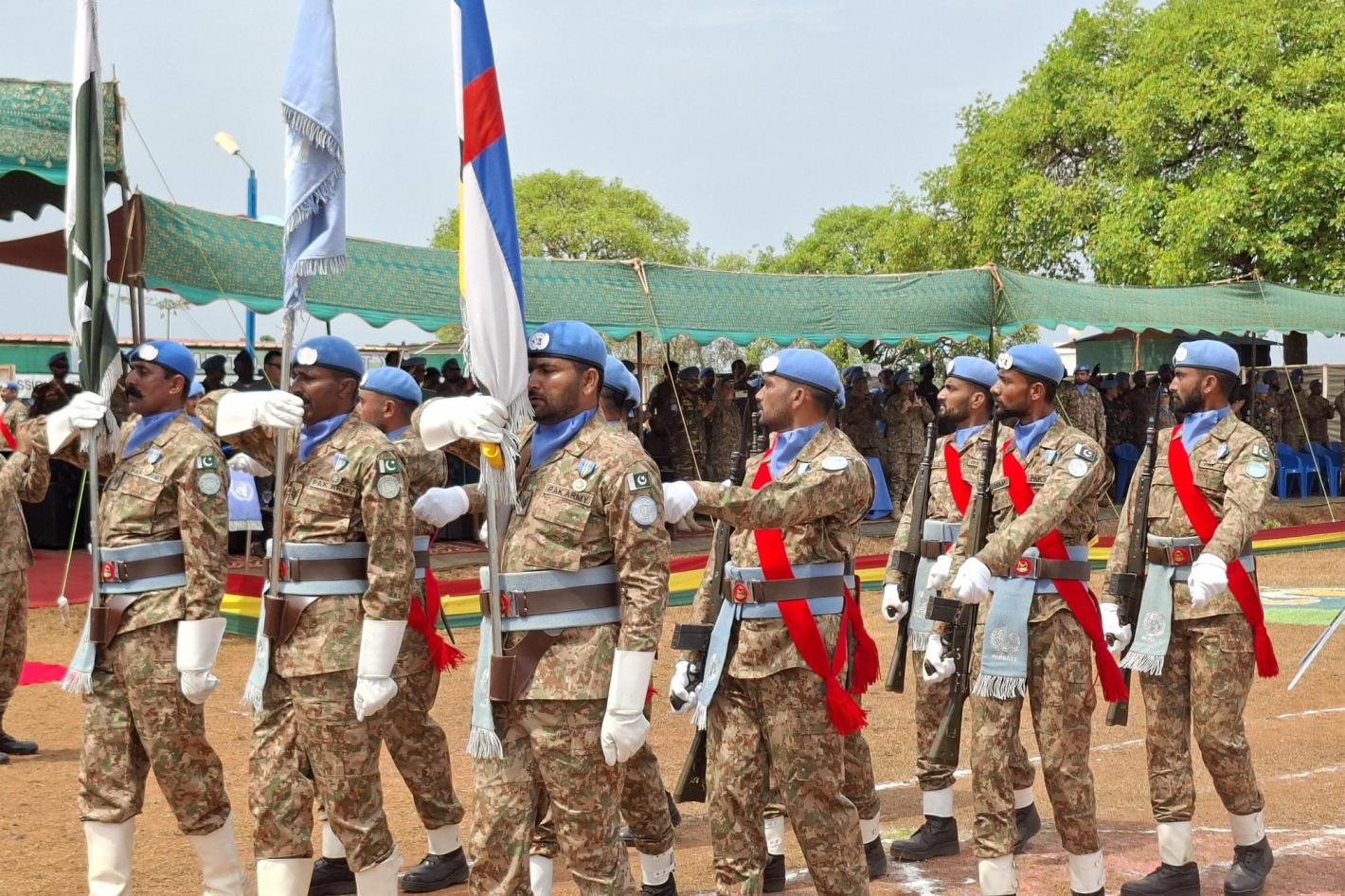Olga Simandele is certified in conflict resolution and mediation. She is a member of the Third-Party Neutral (TPN) group from Kaga-Bandoro, composed of community leaders and other community members as well as local authorities. This association was established in 2016 by the DDR section of MINUSCA and its members were trained by Canadian experts. On 17 May 2021, an inter-community conflict broke out between the communities on the Ngrevai-Kotamale axis in Nana-Gribizi (Central CAR), resulting in 14 deaths, three injuries, and the massive displacement of the population to a in Kaga-Bandoro. It is in this context that the TPN is carrying out awareness-raising activities for the return of peace and social cohesion within the communities.
What motivated you to conduct these awareness-raising activities?
When this crisis broke out, as a Neutral Third Party, the DDR section of MINUSCA called on us to raise awareness among the population on this axis who are in conflict, on the maintenance and consolidation of peace and also on the free movement of people. This is what we have been doing for almost a month now.
What concrete actions have you taken so far?
There are 11 villages on the axis. We are crisscrossing them to inform the population about important themes such as peaceful coexistence, social cohesion, forgiveness, free movement, the danger of holding weapons, etc., in order to see peace and social cohesion return to the communities. We meet with village and neighbourhood leaders so that they can help us facilitate raising awareness in their communities. We also hold meetings with the displaced people who are in a camp in Kaga-Bandoro. People are afraid, and most of them have lost their homes and everything they own. We inform them about the Community Violence Reduction (CVR) programme that is being implemented in their villages. The CVR conducts Cash-for-Work activities by rehabilitating destroyed houses, building markets and drying areas and cleaning up villages. It also provides seeds for cultivation and metal sheets for the reconstruction of houses. This gives these people hope and encourages them to return to their villages.
What is the impact of your actions?
The people in Internally Displaced Persons (IDP) camps are beginning to return to their villages. We also see that contact between villages has resumed. Voluntarily, communities are getting rid of the weapons they have and handing them over to MINUSCA. We see destroyed houses being rebuilt with the support of Mission's Cash-for-Work initiative.
What is the contribution of women in this peace and social cohesion process?
First of all, we as women, four (4) in the TPN, are very much involved in the peace process; we participate in raising awareness in communities in conflict on the Ngrevai-Kotamale axis. Women are listened to a lot in these cases of conflict. Moreover, we encourage and train the women of these communities so that they also help us in sensitization activities and we see that they are motivated because they do not want this kind of situation anymore. One day our activities will end. These women and other community members will continue the work.
Are there community members who work with you?
Yes, we have trained 22 women, youth and elderly people as community relays from all the villages involved in the project. These community relays will carry out outreach activities with us, and they will be able to do the work in our absence and report to us afterwards.
What are the challenges you face in your outreach activities and how have you overcome them?
We are faced with a problem of rumours, with people of bad faith spreading false information that instils fear in the displaced and prevents them from returning to their villages. To overcome these challenges, we have increased our awareness-raising activities in the villages.
The rainy season doesn't make it easy for us since we travel by motorcycle. We need boots and raincoats to facilitate our work. There is also the problem of bad, often impassable roads which waste our time when travelling but we still manage to get to the villages to do the work.






